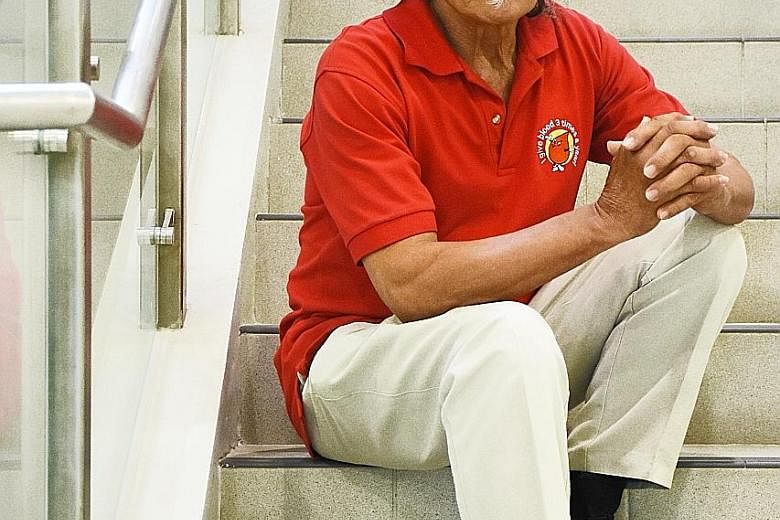He will turn 70 in December, but Mr Zavier Roland Massang is still helping to save lives.
Since he was involved in a scooter accident 30 years ago that required surgery and a blood transfusion, Mr Massang has been paying back the favour from other donors by being a regular one himself.
With 76 units of blood donated to date, Mr Massang - currently the national blood programme's oldest donor - was recognised yesterday at an event held at the Singapore Sports Hub to mark World Blood Donor Day. He was among 1,450 people presented with awards for their contributions to the nation's blood bank.
Data from the Singapore Red Cross (SRC) and Health Sciences Authority (HSA) said there were 112,000 blood donations last year, an increase of 35 per cent from the 83,600 in 2005. Each donation yields a 450ml unit of blood.
The donor pool has also grown by 39 per cent from 51,000 to 71,000 during the same period.
But with one in four people in Singapore predicted to be aged 65 and over by 2030, SRC chairman Tee Tua Ba said the country faces a "double-edged" challenge.
"On the one hand, we risk a decline in blood supply as blood donors mature and are more susceptible to health problems. On the other hand, we expect an increase in the demand for blood, as the elderly develop health complications that require blood transfusion."
Forecasts project that there will be an increase of 3 per cent to 5 per cent in blood needs every year. By 2030, it is estimated that more than 220,000 units of bloods will be needed each year.
To address this, the SRC is looking to increase the proportion of those aged between 16 and 35 in the donor base, from the current 28 per cent to 35 per cent by 2030.
Besides using outreach methods such as social media and mobile apps, the SRC wants to include an introduction to blood donation in the school curriculum at primary and secondary levels.
While most in this demographic are not eligible to donate - the minimum age is 16 - Mr Benjamin William, SRC's secretary-general, said it is good to "inculcate the habit of blood donation" at a young age.
Mr Massang has no plans to stop giving blood. The age limit for first-time blood donors is 60. When regular donors hit 65, they must go for a health check-up.
After 70, check-ups will be done yearly, and a donor's eligibility will be reviewed by the HSA.
Mr Massang recalled how he first found giving blood "rough".
"I had a fear of the needle and the sight of blood," he said. "But after a couple of times, I overcame it."


